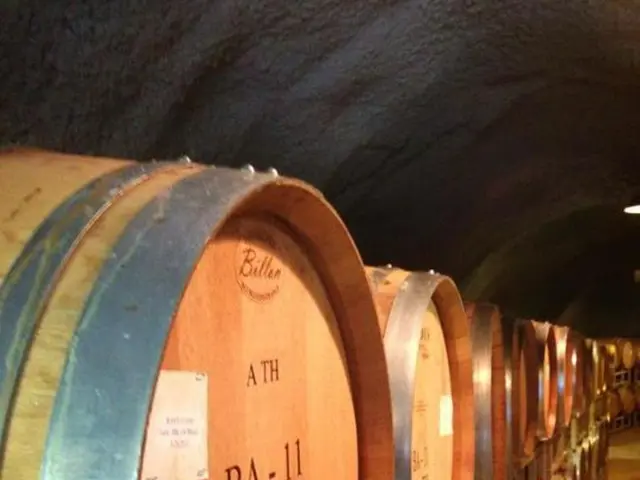Increased number of geothermal power stations in Lower Saxony - Expansion of Geothermal Energy Plants in Lower Saxony
Deep geothermal energy adoption is Washington blossoming in Lower Saxony, Germany. The State Office for Mining, Energy, and Geology (LBEG) in Hannover reports that from 2018 to 2024, an impressive array of surface-near geothermal plants have operated in the state, with a doubling of their numbers, reaching 26,600 in 2024. Here's a closer look at the latest developments:
Deep Dive into Deep Geothermal Energy
While shallow geothermal energy has been gaining momentum, deep geothermal energy remains a fledgling area, especially compared to more traditional resources in southern Germany. However, Lower Saxony does have some potential in deep sedimentary basins, like the North German Basin.
You might be thinking, "What about the challenges?" Well, deep geothermal energy comes with higher risks and costs due to the region's lower activity compared to Bavaria or Baden-Württemberg and their accessible high-temperature geothermal resources.
A Journey from 2018 to 2024
Let’s trace the development of deep geothermal energy in Lower Saxony over the past several years:
- 2018: At the starting line, few, if any, operational deep geothermal plants were working in Lower Saxony. The focus was mainly on academic studies, site investigations, and exploratory projects.
- 2019–2023: With Germany's ongoing energy transition (Energiewende), interest in deep geothermal energy has been growing slowly but steadily. During this period, several pilot and research projects were initiated, with an emphasis on assessing the feasibility and risks of deep geothermal energy in Lower Saxony. However, large-scale commercial plants remain undeveloped.
- 2024: The story is roughly the same, with the situation largely unchanged. Some ongoing research projects and pilot initiatives are in progress. Nevertheless, there are no significant numbers of deep geothermal plants in operation, and deep geothermal energy is still not a major part of the state's energy mix.
Funding and Planning
Support for research and development has continued, as have investments in pilot projects aimed at proving technical feasibility and addressing seismicity concerns.
The Emsland region Leads the Way
As of 2024, the Emsland region boasts the most geothermal plants in Lower Saxony, with 3,100 installations. Joining Emsland in the geothermal energy top five are Hannover, Cloppenburg, Harburg, Osnabrück, and the county of Bentheim, each with over 1,000 geothermal plants. The least-populated areas, such as the Harz, Lüneburger Heide, Wendland, and Solling regions, have relatively few plants, largely due to their low population density.
Future Prospects
With continued advancements in technology and better management of risks, there's potential for future growth in deep geothermal energy in Lower Saxony.
Are you eager to learn more about specific projects or catch the latest news? Check out the official websites of Lower Saxony’s energy ministry or reports from German energy research institutes for up-to-date information.
- In Lower Saxony, various policy initiatives are being considered to further boost the adoption of deep geothermal energy, including research funding for environmental-science projects and employment policies catering to the science industry.
- As the number of deep geothermal plants in Lower Saxony continues to grow, there is a pressing need for comprehensive employment policies to address the increasing demand for skilled professionals in the energy sector.
- To ensure sustainable and responsible growth in the deep geothermal energy sector, the State Office for Mining, Energy, and Geology (LBEG) in Hannover is actively engaging with the financial sector, promoting investment opportunities and seeking environmental-science solutions for potential energy-related issues.







